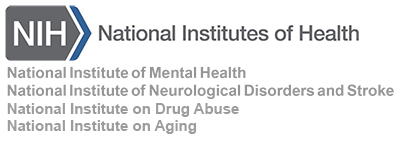HIV infection and latency induce a unique metabolic signature in human macrophages.
| Title | HIV infection and latency induce a unique metabolic signature in human macrophages. |
| Publication Type | Journal Article |
| Year of Publication | 2019 |
| Authors | Castellano, P, Prevedel, L, Valdebenito, S, Eugenin, EA |
| Journal | Sci Rep |
| Volume | 9 |
| Issue | 1 |
| Pagination | 3941 |
| Date Published | 2019 03 08 |
| ISSN | 2045-2322 |
| Keywords | Blotting, Western, Citric Acid Cycle, Energy Metabolism, Glutamic Acid, Glutamine, Glycolysis, HIV Infections, Humans, Lipid Droplets, Macrophages, Mitochondria |
| Abstract | Currently, a major barrier to curing HIV infection is the generation of tissue-associated, non-replicating, long-lasting viral reservoirs that are refractory to therapy and can be reactivated upon anti-retroviral therapy interruption. One of these reservoirs are latently HIV-infected macrophages. Here, we show that HIV infection of macrophages results in survival of a small population of infected cells that are metabolically altered and characterized by mitochondrial fusion, lipid accumulation, and reduced mitochondrial ATP production. No changes in glycolysis were detected. Metabolic analysis indicated an essential role of succinate and other TCA metabolites in the tricarboxylic acid (TCA) cycle in mediating lipid accumulation and oxidative phosphorylation (OXPHOS) in the mitochondria. Furthermore, we show that while uninfected and HIV infected macrophages use fatty acids and glucose as primary sources of energy, surviving HIV infected macrophages also use glutamine/glutamate as a major energy source, and blocking these new sources of energy resulted in the killing of latent HIV infected macrophages. Together, our data provide a new understanding of the formation, properties, and potential novel ways to eliminate macrophage viral reservoirs. |
| DOI | 10.1038/s41598-019-39898-5 |
| Alternate Journal | Sci Rep |
| PubMed ID | 30850623 |
| PubMed Central ID | PMC6408492 |
| Grant List | U24 MH100929 / MH / NIMH NIH HHS / United States U24 MH100925 / MH / NIMH NIH HHS / United States U24 MH100931 / MH / NIMH NIH HHS / United States U24 MH100928 / MH / NIMH NIH HHS / United States R01 MH096625 / MH / NIMH NIH HHS / United States R01 NS105584 / NS / NINDS NIH HHS / United States U24 MH100930 / MH / NIMH NIH HHS / United States |

